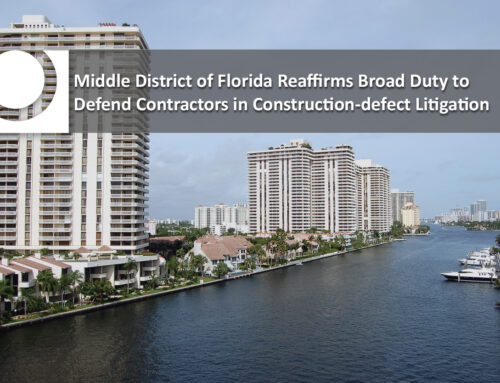Judgment Creditors Seeking Reimbursement Under a Judgment Debtor’s Liability Policy Could Face Difficulty
Recently the Idaho Supreme Court approved a modification to the Idaho Rules of Civil Procedure regarding joinder of parties to declaratory-relief actions involving insurance-coverage issues. The change could spell big problems for successful plaintiffs (now, creditors with a judgment in their favor) wishing to pursue collection of a judgment from the judgment debtor’s available insurers. The former Rule 57(b) required that potential judgment creditors be joined in actions seeking a judicial declaration about coverage:
In an action seeking declaratory judgment as to coverage under a policy of insurance, any person known to any party to have a claim against the insured relating to the incident that is the subject of the declaratory action shall be joined if feasible.
But the revised version of the rule, which took effect July 1, 2014, requires only ”notice” to the party with a claim against the insured, not joinder:
In an action seeking declaratory judgment as to coverage under a policy of insurance, any person known to any party to have a claim against the insured relating to the incident that is the subject of the declaratory action shall be provided notice of the action by the party seeking declaratory judgment.
This change means that now an insurer in Idaho can file a claim for declaratory relief, ask the court to find they have no duty to defend or indemnify their insured, and the party actually pursuing the claim against the insured will have no automatic right to be joined and heard on the issue. So, in cases where a party is suing a defunct corporation or a person with no real assets other than insurance, insurers, with large assets and a team of lawyers at their disposal, may be able to file their claim for declaratory relief and obtain a quick default judgment (assuming the insured fails to answer, likely because they have no assets to pay to defend the claim in the first place). All of this leaves the aggrieved and injured party with no real right of recovery or opportunity to be heard on why coverage should apply. This new rule change is especially concerning given that the Idaho Supreme Court recently held that judgment creditors do not have standing to initiate their own declaratory-relief action against a judgment debtor’s insurer. See Brooksby v. Geico General Ins. Co., 153 Idaho 546 (2012).
Current claimants and judgment creditors in Idaho should beware of the above rule change and its impact on their attempt to recover from a defendant’s insurer, which is often the only pocket with any money. And prudent claimants and judgment creditors who receive notice of a declaratory relief action should quickly seek the advice of insurance-coverage counsel on how to best protect their interests on right of collection, including perhaps a motion to intervene in the lawsuit. Failure to do so may mean the insurer wins, and purely by default.



